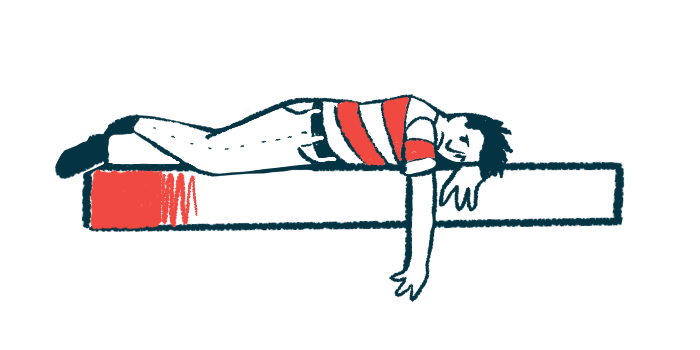At Military CF Centers, More Work Needed on Mental Health Care
Study finds most centers in US are following screening guidelines
Written by |

Most military cystic fibrosis (CF) centers in the U.S. are generally following mental health screening guidelines — but there’s still room for improvement — a study showed.
Specifically, the identified areas needing improvement include the standardized use of screening tools for suicidal thoughts, improving healthcare providers’ comfort with all mental health screening tools, and increasing the use of the U.S. Military’s Behavioral Health Data Portal (BHDP).
The goal of the Army’s BHDP is to “move toward a culture of standard clinical data-driven quality improvement practices,” its website states.
Meeting these goals could help to better mental health care and improve the quality of life of people with CF and their caregivers, the researchers noted.
The study, “Behavioral Health Screening in Military Cystic Fibrosis Centers: A Survey,” was published in the journal Military Medicine.
Mental health problems common in cystic fibrosis
Overall, anxiety and depression are common mental health issues among people with cystic fibrosis, a genetic disease that affects nearly 40,000 people in the U.S. alone. CF patients and their caregivers have been reported to have up to a threefold higher risk of experiencing depression and anxiety symptoms than those without the disease.
“Furthermore, among patients with CF, psychological distress is associated with decreased adherence to treatment, reduced pulmonary functioning, increased hospitalizations, and overall higher health care costs,” the researchers wrote.
To improve mental health outcomes in this general patient population, the U.S.-based Cystic Fibrosis Foundation (CFF) and the European Cystic Fibrosis Society in 2016 released behavioral health (BH) screening recommendations.
These guidelines recommend that all CF patients, ages 12 and older, be screened at least annually for depression and anxiety. Clinicians are urged to use the patient health questionnaire depression module (PHQ-9) to screen for depression, and the generalized anxiety disorder screening tool (GAD-7) for anxiety.
Additionally, it is recommended that at least one primary caregiver of a child or adolescent with CF should be offered annual screenings for these conditions, using a number of validation measures, including the PHQ-9 and GAD-7.
Moreover, “teams should establish a care pathway with a plan to address suicidal ideation [thoughts] for patients or caregivers screening positive for suicide risk on depression screening,” the researchers wrote. The Columbia Suicide Severity Rating Scale (C-SSRS) is recommended for evaluating this risk, the guidelines state.
Previous research suggests that most CF centers in Europe and the U.S. are implementing these mental health screening guidelines. But no studies to date have evaluated such screening practices across the six U.S. Department of Defense (DoD) affiliate CF centers, used by U.S. military personnel and their families.
Now, researchers at Tripler Army Medical Center, in Honolulu, along with a colleague at the Children’s Hospital of Philadelphia, developed a 23-item survey to assess the behavioral health (BH) care resources and screening carried out in all six military CF centers in the U.S.
The survey was sent to the 12 primary managers — six program directors and six nurse coordinators — of the six CF centers. Five program directors (83%) and three nurse coordinators (50%) completed the survey anonymously.
Results showed all military CF centers were screening CF patients, 12 and older, for depression and anxiety at least annually with the recommended, corresponding measures. In all but one CF center, at least one CF patient caregiver also underwent such screening.
This indicated that about 80% of military CF centers in the U.S. are following screening guidelines for anxiety and depression.
Assessing for suicidal thoughts
The survey also found that suicidal thoughts were assessed in all adolescents and adults with CF, in all CF centers. Such patient screenings were reported to occur every three months to every year, while caregiver screening ranged from never to twice annually.
One nurse coordinator reported not knowing the frequency of suicidal thoughts screening for patients and caregivers.
“Tools used in screening for suicidality varied widely,” the team wrote, with three centers using a single yes/no question about the presence of suicidal thoughts. One center reported using the C-SSRS assessment, while another employed the Ask Suicide-Screening Questions tool.
When asked about mental health team members, all survey participants said their CF clinic team included a designated social worker. Three-quarters of them reported that their social worker was physically present 75%–100% of the time.
Other types of mental health team members varied across these DoD cystic fibrosis clinics, ranging from psychiatrists and psychologists to child life specialists.
“The reported percentage of time that these providers are available for CF clinic meetings was also variable,” the researchers wrote.
Most program directors and nurse coordinators reported feeling “somewhat comfortable” to “very comfortable” in screening CF patients for depression, anxiety, and suicidal thoughts.
However, four in five program directors (80%) reported being “not so comfortable” with screening for psychological distress in caregivers. Two of three nurse coordinators were “somewhat” to “very” comfortable in screening for depression and anxiety in caregivers, but none were “very comfortable” in screening caregivers for suicidal thoughts, the survey found.
“With the life expectancy of patients with CF continuing to rise and adult-trained professionals beginning to collaborate with existing teams, comfort levels within teams may increase as these additional providers contribute their added comfort in screening adult patients and caregivers for indicators of psychological distress,” the team wrote.
The researchers also assessed how familiar these primary managers of military CF centers were with the use of the BHDP. This Army-wide, web-based database allows standardized collection of behavioral health data and tracking of patient care and outcome measures.
According to responders, 80% of the military CF centers were unaware of the BHDP, or had no access to it for screening their patients or caregivers.
Moving forward
The survey findings highlight that military CF centers “are engaging in BH screening in accordance with CFF recommendations for CF patients and at least one caregiver,” the researchers wrote.
Still, they noted that responses may have been biased due to a desire by survey participants to answer questions “in a way that appears to be most socially acceptable.” The researchers noted that one limitation of the study overall “is the potential for self-report bias, specifically social desirability bias.”
“Areas for improvement include the standardized use of screening tools for suicidality, increased provider comfort with screening, and streamlined recording and tracking of this data using the BHDP,” they added.
“Steps toward suggested improvements and further utilization of the BHDP may improve BH care for patients with CF and their caregiver(s) in addition to facilitating future research,” the team concluded.









